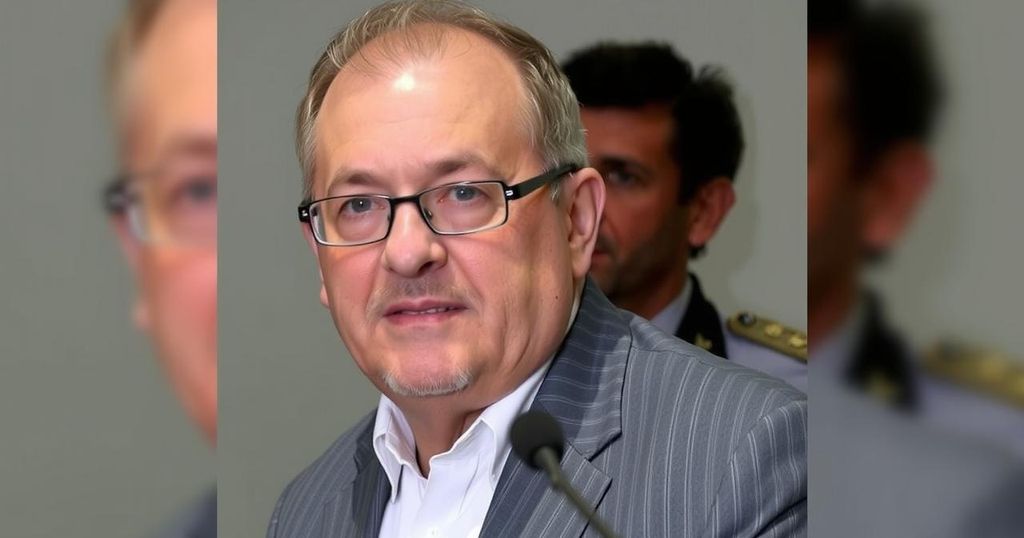Lebanon Detains Son of Late Muslim Brotherhood Leader Amidst Egyptian Warrant

Lebanese authorities have arrested Abdul Rahman Al-Qaradawi, the son of the late Muslim Brotherhood leader Yusuf Al-Qaradawi, under an Egyptian warrant for opposing the state and inciting terrorism. The arrest occurred at the Masnaa border crossing upon his return from Syria. Lebanese judiciary is reviewing his case for potential extradition to Egypt, amidst ongoing tensions related to the Muslim Brotherhood.
On Saturday, Lebanese authorities apprehended Abdul Rahman Al-Qaradawi, an Egyptian activist and poet, at the Masnaa border crossing upon his return from Syria. He is the son of the late Yusuf Al-Qaradawi, a prominent Sunni scholar and spiritual leader of the outlawed Muslim Brotherhood in Egypt. His arrest was executed under an Egyptian order stemming from a judicial ruling sentencing him to five years in prison for opposing the state and inciting terrorism. The Lebanese judiciary is reviewing his case to determine whether conditions for extradition to Egypt are met, following which a final decision will be made by the Lebanese government.
Abdul Rahman Al-Qaradawi has been a vocal opponent of various Egyptian leaders, including the late Hosni Mubarak, and he recently celebrated the fall of Syrian President Bashar Assad in a viral video filmed at the Umayyad mosque in Damascus. The video has been perceived as incendiary by Egyptian media, with calls from some commentators for his extradition due to the Egyptian government’s long-standing opposition to the Muslim Brotherhood, which was classified as a terrorist organization in 2013. In the backdrop, Abdul Rahman holds Turkish citizenship and had been visiting Syria before his arrest. His father, Yusuf Al-Qaradawi, died in 2022 after numerous imprisonments and decades in exile in Qatar. His daughter, Ola, also faced legal troubles in Egypt related to the Muslim Brotherhood and was released in 2021 after being detained for four and a half years.
The Muslim Brotherhood has been a significant political force in the Arab world, advocating for political Islam. Following the 2011 Arab Spring, which led to the ousting of then-President Hosni Mubarak, the organization gained political power but was swiftly marginalized after the military coup in 2013 that brought Abdel Fattah El-Sisi to power. The subsequent crackdown has seen thousands imprisoned, and the Brotherhood labeled a terrorist organization. Yusuf Al-Qaradawi was a prominent figure within the Brotherhood, known for his theological contributions and political activism, making his family particularly scrutinized by the Egyptian authorities.
The arrest of Abdul Rahman Al-Qaradawi highlights ongoing tensions between the Egyptian government and members of the Muslim Brotherhood, reflecting broader regional conflicts related to political Islam. As Lebanese authorities evaluate the potential for extradition based on the judicial request from Egypt, the implications of such actions could reverberate through the already complex relationship between Lebanon, Egypt, and Syrian affairs, especially after the recent developments in Syria. Additionally, this situation underscores the challenges faced by the families of high-profile figures associated with the Muslim Brotherhood, especially in the context of repression against dissent in Egypt.
Original Source: www.arabnews.com








